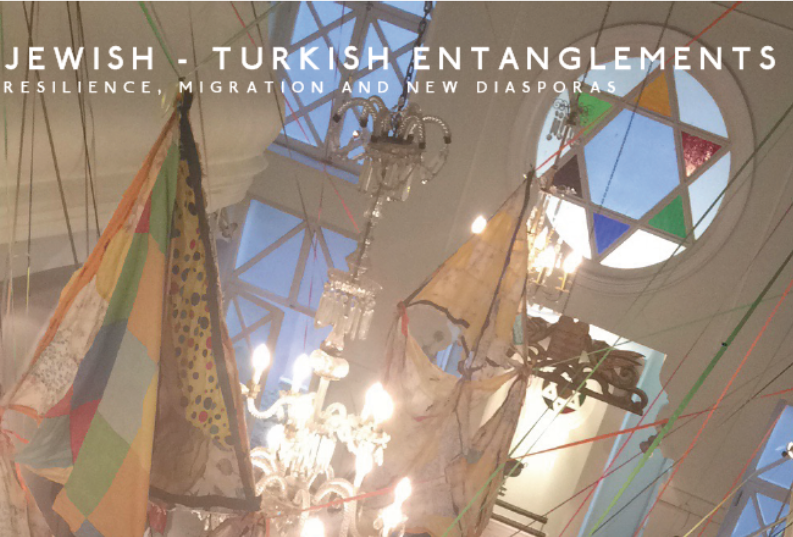Turkey's Jewish communities today face existential challenges. Pressures range from those brought about by economicand political instability that plague the entire country to those that specifically target Jews and other minoritiessuch as anti-Semitism, xenophobia and nationalism. Once extending from Thrace to eastern Anatolia andincluding, in addition to the Sephardi majority, linguistically and culturally diverse communities from the NashDidan of Van to the Arabic-speaking Urfalim of Mesopotamia and the Yiddish-speaking Ashkenazim of Istanbul,the Jewish presence in Turkey today has shrunk to a number estimated to be around 10,000 at most, settled almostexclusively in the urban centres of Istanbul and Izmir with tiny groups in Bursa, Adana and Antakya.
The nation-building policies of the early Turkish Republic discriminated against non-Muslim elements while encouragingassimilation through the erasure of the cultural, linguistic, and physical reminders of their difference.When these policies resulted in acts of collective violence specifically targeting Jewish communities, such as thepogroms in Thrace in 1934, the first large wave of Jewish emigration began. The second such wave came with theproclamation of the State of Israel in 1948. Since the early 1980s, the Jewish community has also suffered attacksby Islamist terrorists directly targeting Jews, several of which resulted in a high number of fatalities. More recently,the AKP government's ideology has become more virulently anti-Semitic as Israel’s treatment of Palestinianshas turned more visibly violent. The result is a growing sense of insecurity among Turkish Jews, some of whomnow take advantage of Spain and Portugal’s extension of citizenship to the descendants of Jews expelled fromSpain in the 15th century. Despite their long history and attachment to the territories of modern Turkey, the Jewishcommunities may now be nearing a point where long-term survival in Turkey is uncertain. Emigration is animmediate, if not ideal, solution for many.
Yet, even as families are moving to the US, Israel, Spain or France, they often maintain networks and identificationwith Turkey, which, it could be argued, equate to a notion of Turkey-centred 'diasporic consciousness'. Suchconsciousness is palpable in neighbourhoods like Ra'anana in the Tel Aviv area but also in academic circles in Paris.At the same time, many Jews are not moving and insist on being accepted as equal citizens. Resilience is notlimited to the institutions of the community, but extends to individuals who are determined to stay. Finally, thereis also the less explored phenomenon of return migration to Turkey.
It is in this context of resilience, dispersal and new beginnings that we seek to revisit the past and present of Turkey's Jewish communities and explore their possible futures. We wish to re-engage with the modernisation and Turkification in the late Ottoman Empire and the early Republic and examine the waves of migration after theestablishment of Israel, the emergence of Turkish-speaking communities in Israel, and the maintenance of communitylife and struggles for recognition in the 1980s and today.
The aim of this Symposium is to provide a historically-grounded snapshot of Turkey's Jewish community and itsdiasporic entanglements, and engage with Turkey's recent past through the prism of its Jewish communities.Their history intersects with major turning points of Turkey's history, and it is in these intersections and instancesof entanglement that we expect to gain additional insights into Turkey's politics, society, and the role of the statein shaping the sites of everyday life. At the same time, and with an eye on the old and new Turkish diasporas inIsrael and elsewhere, we seek to rethink what it means to be Turkish. Doing this, we shall explore possible futuresof de-territorialised, transnational forms of Turkish Jewry and Turkish identity more generally.
Established conceptual frameworks of diaspora would not usually think of Jews from Turkey in Israel as a diasporagroup, but rather as a former diaspora community set to dissolve within its ethnic kin state. From a conceptualangle, our aim is to question and rethink the diaspora approach and work towards an understanding of 'diasporicsensibilities' and 'post-communitarian diasporas'.
We are looking forward to discuss these issues and we are delighted to welcome you in Graz for two days of intensivedebate.
Ipek Yosmaoğlu and Kerem Öktem
